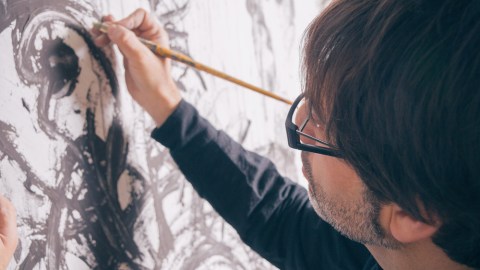Following Your Passion Is Impractical — Consider Doing it Anyway

The idea of finding a career by following your passion is one of the most pervasive truisms of the modern era. We’ve heard it from Oprah and seen it on Pinterest boards. William MacAskill has written a new book, Do Good Better, that suggests such advice is faulty and, in fact, we should base our career choices on what we could learn to be good at rather than what we are currently good at. He says that too many people’s passions are based in the arts or sports and not realistic, in-demand careers. As a result, many end up frustrated, having spent years working a career that wasn’t working for them. What if there was a better way?
In a recent article, MacAskill laid out his general guidelines for choosing a career. Find something that is engaging, and the passion will follow. This is practical and solid advice; he noted most people aren’t even that good at the things they are passionate about. So few people can make careers in their passion, it’s true, and it reminds me of The Onion article “Find the Things You’re Most Passionate About, Then Do It on Nights and Weekends For the Rest of Your Life.” That article is funny because it’s true — at times it seems just as we are told to follow our passion, we also face challenges and real-world demands while in our pursuit.
Where is there room for artists to perfect their craft in an overly practical society?
MacAskill then asks, “If you were to invest the time, how good would you become at this career, compared to other careers you might choose?” and it is here that I find difficulty with his theory. It supports Malcolm Gladwell’s idea that spending 10,000 hours on a skill will lead you to master it, and yet it’s difficult for me to see why MacAskill didn’t mention those 10,000 hours couldn’t be spent on a skill that is also your passion.
Gladwell famously used The Beatles as an example of this, citing the years they spent in Hamburg playing for hours on end as key in their development as musicians. I concur with MacAskill that there is an overabundance of idealism in the “you can be anything you want to be” culture, but where is there room for artists to perfect their craft in an overly practical society?
As a result [of following their passion], many end up frustrated, having spent years working a career that wasn’t working for them.
He asks, “Are you interested in the same thing today you were 10 years ago?” which is supposed to make us say, “No, you’re right; my passions are constantly changing.” In many cases, for many people, that would be eye-opening and true. My answer, however, was yes, I am still interested, and actively pursuing those endeavors with as much interest and passion as ever.
I understand and appreciate that too many of us follow a “feeling” rather than acting in the best interest of a career. However, there is a middle ground wherein people have a feeling, a fire that drives them, and they view their work as a craft and will work for years to become masters of their craft. They turn that craft, that love, and that skill set into a career. Without following this inner fire, we would be bereft of artists, sports stars, and great thinkers. To quote John Lennon, “Love is a flower, you gotta let it grow.” Even if that’s not always quite practical.
Image courtesy of Shutterstock





